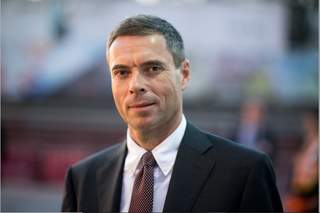
Michael Clauß, Germany's Permanent Representative to the EU © Ständige Vertretung Deutschlands bei der EU
Germany's EU ambassador: "We must reposition ourselves as an exporting nation"
What motivates you for your work?
The Permanent Representation to the EU is a special German representation. Less classical diplomacy, but with a direct impact on German politics, business and society. No other post in the Federal Foreign Office can play such a central role in setting the course of European policy and legislative processes. Every day, my team and I have the opportunity - and thus also the responsibility - to lead complex negotiations to success. Be it on economic and financial issues, trade or consumer protection, to name just a few areas. I am also motivated by the collegiality I experience among the 27 Permanent Representatives. Of course, this helps when I must endure one of the famous long nights in the Council building.
How do you contribute to strengthening Europe through your work?
Together with my colleagues from the other EU Member States, I sit on the "Permanent Representatives Committee", COREPER for short. Here we prepare all the Councils of Ministers and EU summits. We discuss intensively and successfully forge compromises: A recent example is the sanctions packages against Russia in response to the brutal war of aggression against Ukraine. Also during the Covid19 crisis, our committee was the only one still physically active in the Council, quasi as a "machine room" during the lockdown. If we look a little further and talk about strengthening Europe in the world, European sovereignty is an important topic for the future - from domestic semiconductor production to opening up new raw material markets to the "Global Gateway" strategy, which aims to mobilise 300 billion euros for sustainable investments in the future.
What do you consider to be the top European policy issue facing German industry in the next six months?
We are living in a time of upheaval with major challenges. The effects of the war in Ukraine are enormous and affect us all. Politically, economically and socially. Decisions made at the European level - from sanctions to energy-saving measures - also mean that German industry must adapt. In any case, the European "Green Deal" with the goal of EU climate neutrality by 2050 already triggered far-reaching restructuring and the transformation of CO2-intensive industries. One thing is clear: we must reposition ourselves as an export nation in the midst of the energy transition. I am optimistic that we will be able to master these challenges with German know-how and inventiveness as well as smart political support.



